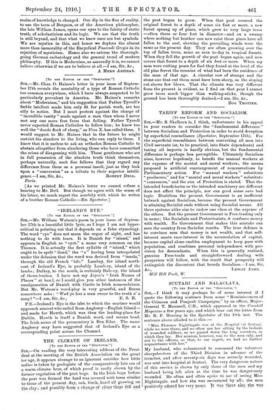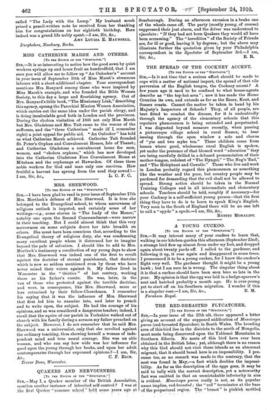SCUTARI AND BALACLAVA.
[TO THE EDITOR OF THE "SPECTATOR.”1
Sin,—I think it may perhaps be of some interest if I quote the following sentence from some "Reminiscences of the Crimean and Punjaub Campaigns," by an officer, Major- General T. Maunsell, C.B., which appeared in the Cornhill Magazine a few years ago, and which bear out the letter from Mr. R. F. Herring in the Spectator of the 10th inst. The sentence above alluded to is this :-
"Miss Florence Nightingale was at the Hospital [at Scutari] while we were there, and we often saw her sitting by the bedside of wounded soldiers, as we passed down the long corridors, in which they lay. Her mission, however, was to the men only, and not to the officers, so that, to our regret, we had no further acquaintance with her."
My husband, who volunteered to command the volunteer sharpshooters of the Third Division in advance of the trenches, and after seventy-six days was severely wounded,
was sent into hospital at Scutari. The very dangerous nature of this service is shown by only three of the men and my husband being left alive at the time he was dangerously wounded. He often and often spoke to me of seeing Miss Nightingale, and how she was reverenced by all; the men positively pAiored her very pale, Jt w there 0.4ag 010 w§9
• •
called " The Lady with the Lamp." My husband muoh prized a pencil-written note he received from her thanking him for congratulations on her eightieth birthday. Hers indeed was a grand life nobly spent.—I am, Sir, &c.,











































 Previous page
Previous page